Health New Zealand






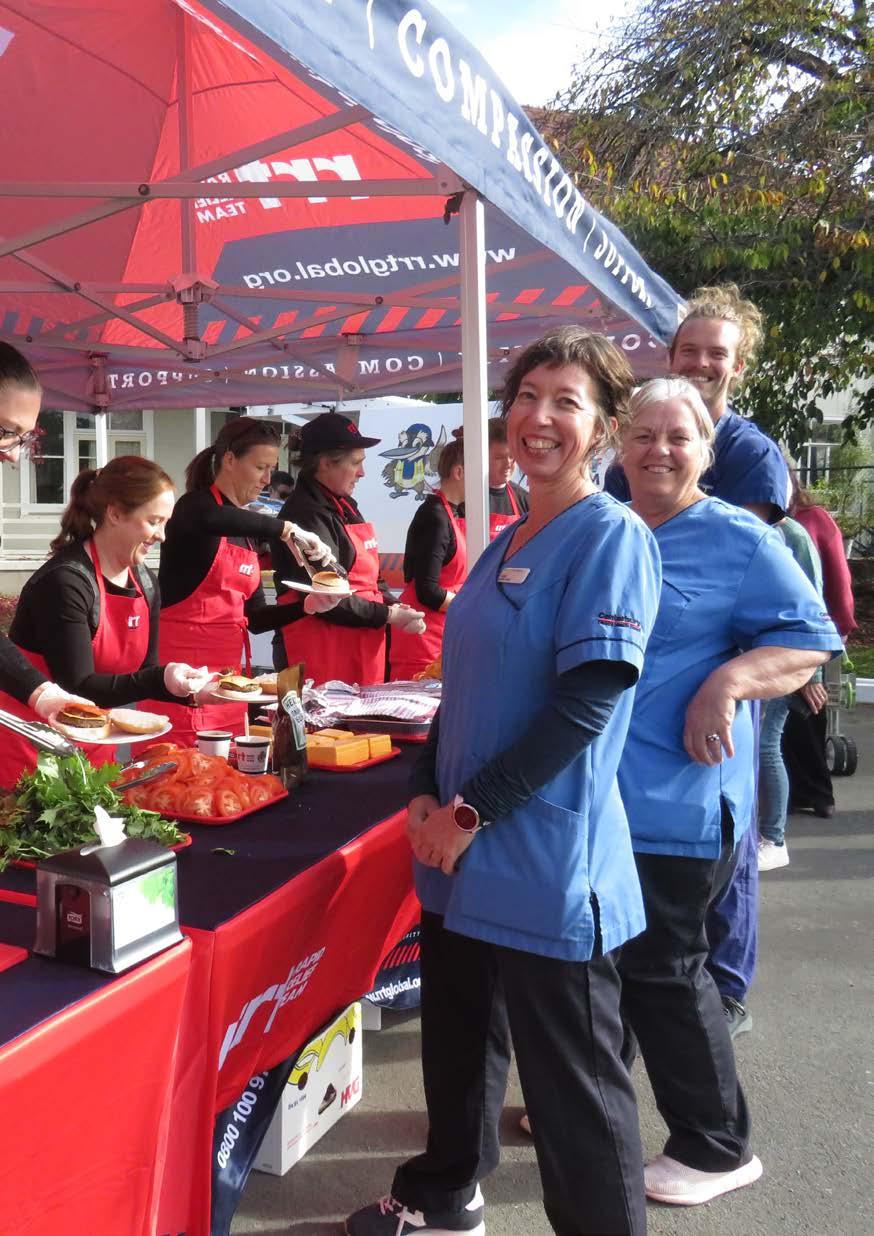
Kupu Arataki – Introduction... pg 3-6
Ā mātou tāngata – Our people
› Acknowledging the mahi of our nurses... pg 7
› Celebrating our nurses in Waitaha Canterbury... pg 8-9
› The fundamental role of nursing – a message for International Nurses Day... pg 10-11
› One minute with… Maries Villa, Occupational Health Nurse... pg 12
› Meet the Disability Steering Group – Paul Barclay... pg 13-14

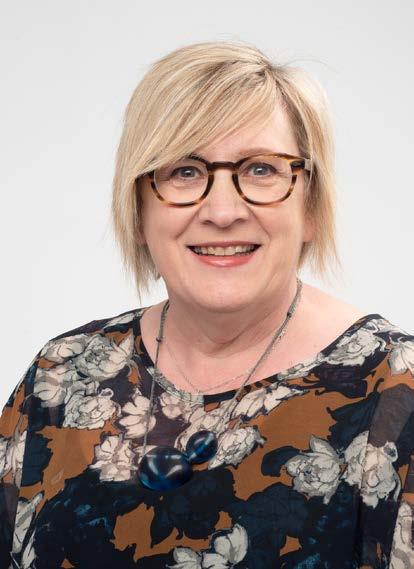
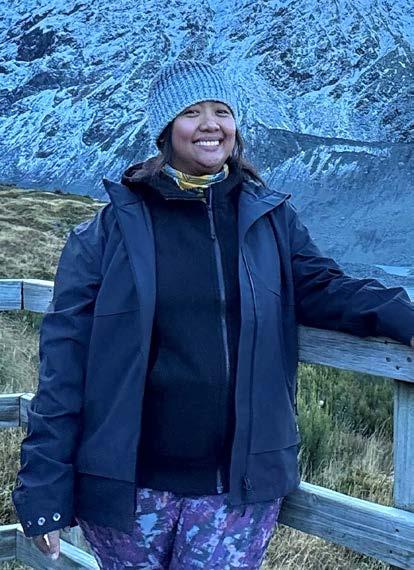
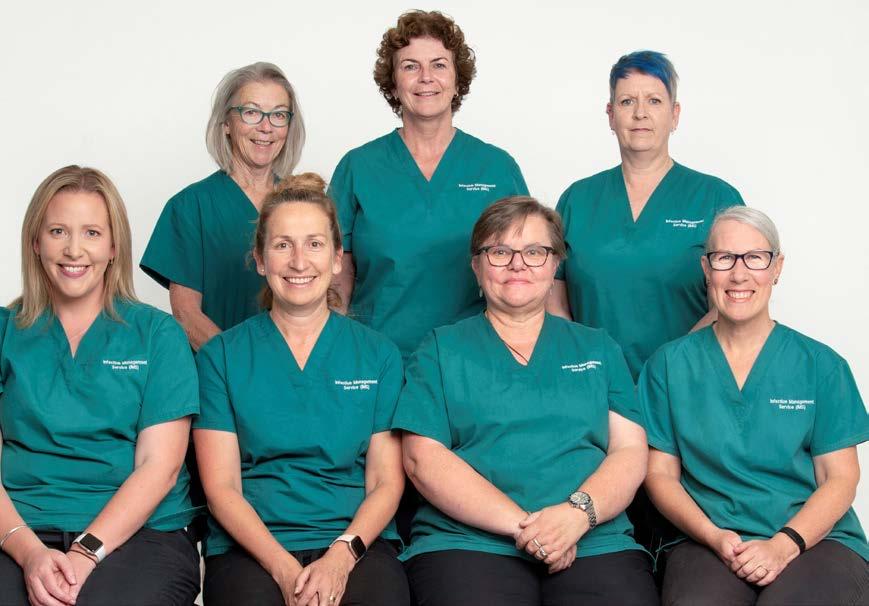
Whakamihi – Bouquets... pg 15–16
Ā mātou korero – Our stories
› Team’s vital role in antibiotic treatment ... pg 17-18
› Jammies for Juniors heats up as weather cools down... pg 19
› Vaccination drive to keep Pacific families well... pg 20
Pānui – Notices... pg 21–22
Cover photo: A big thank you to all nursing staff across Waitaha Canterbury! Charity organisation Rapid Relief Team has been providing free meals for nurses across the region as part of International Nurses Day celebrations, including this group at Christchurch Hospital last Friday

Kōrero Mai, Kōrero Atu, Mauri Tū, Mauri Ora – Speak Up, Stand Together, Stop Bullying! Kua rite koe? Are you in?
Friday 17 May is Pink Shirt Day, a day that celebrates diversity, and creates environments where all people can feel safe.
Under our pou of Wairuatanga we work with heart. We are committed collectively to a workplace free of bullying and discrimination.
This means we take responsibility for treating colleagues, people and whānau with respect and dignity.
Let’s be Upstanders and get behind Pink Shirt Day 2024. Wear pink and help eliminate bullying by celebrating diversity and promoting kindness and inclusion.
Here are some ideas for how you and your team can take part:
› Be an Upstander: Learn more about bullying, its effects, and what you can do to stop bullying in the workplace
› Wear Pink! The official pink tees are available online here or in CottonOn stores. Get yours now! All proceeds go to the Mental Health Foundation.
› Decorate your area in pink and posters from the Pink Shirt Day website
› Play the pink quiz with your team
› Embrace diversity through kōrero. The Diversi-tea Kōrero Starter activity is an easy way to begin a kōrero and learn more about your hoamahi/ colleagues.
› Check out more ideas and resources at Pink Shirt Day including posters, compliment cards, bunting, cupcake toppers, photo props and more.
FRIDAY 17 MAY 2024
Send us your photos! If you’re holding an event for Pink Shirt Day, share it with your colleagues. Send us your photos and we’ll include a selection in an upcoming edition of Pānui. Email communications@cdhb.health.nz (Photos submitted may be used in internal and external media including social media)
› Host a Pink Shirt Day fundraising event. Help your colleagues become kinder and more inclusive, while supporting your workplaces to be places where people feel safe and valued.
This week we mark International Nurses Day, which was observed on Sunday 12 May.
Our health system is full of highly trained, committed nurses who deliver excellent care.
We celebrate the integral role nurses play within our multidisciplinary teams. Together we are making significant steps towards Pae Ora, healthy futures, for all.
Read more about how Waitaha Canterbury is marking the occasion, and some of the work of our nurses, in our coverage starting on page 7

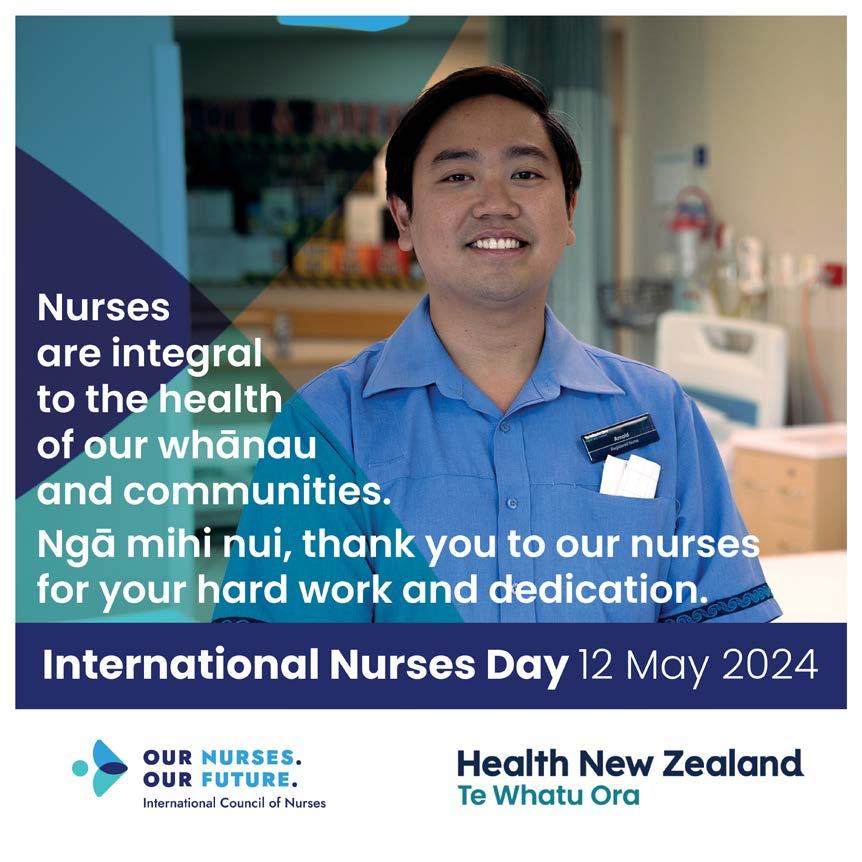
Demolition of the old Christchurch Hospital boiler house at 235 Antigua Street is under way this week, and should be completed around the end of the month.
The demolition work is taking place alongside the road/bus network, and a traffic management plan is in place to ensure safety for site personnel and members of the public, and to minimise the impact on traffic flows in the area, but some disruption may occur.
Comprehensive dust mitigation measures will also be in place, including dust-preventing mist cannons and water spraying, along with a noise and vibration management plan to comply with relevant standards and bylaws.
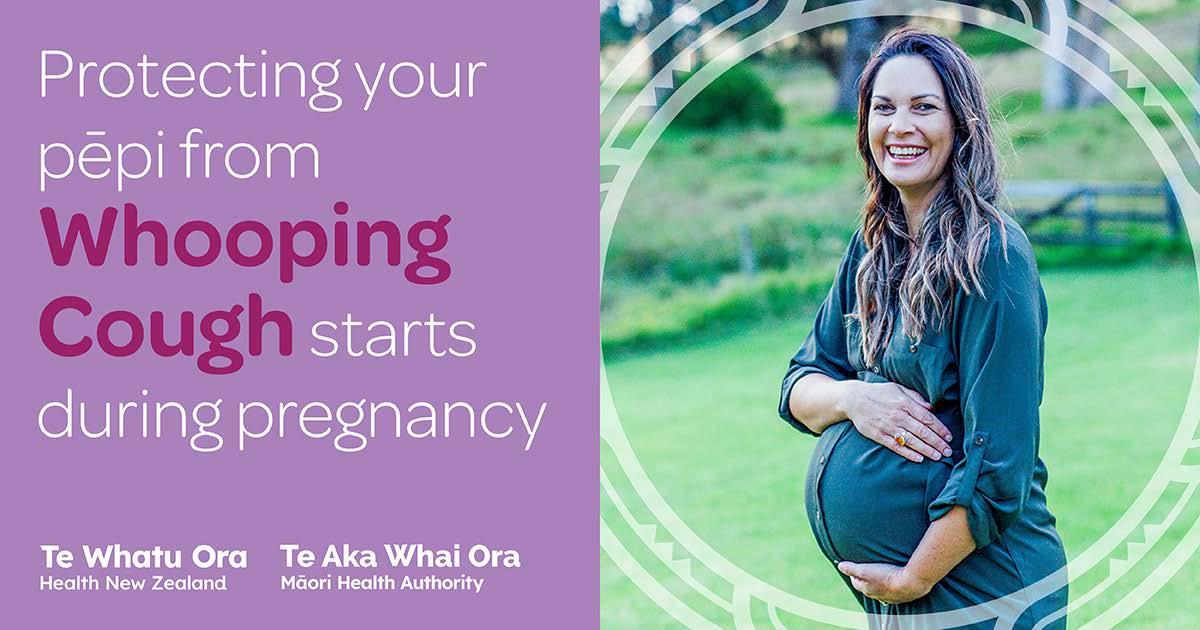

Health New Zealand | Te Whatu Ora staff handle sensitive and personal information every day – and while privacy seems straightforward, it’s important we all remain vigilant and understand our responsibilities.
The Privacy Act 2020 and Health Information Privacy Code 2020 apply to Health NZ and control how we collect, use, store and share personal and health information.
Privacy Week is an opportunity to check or grow your knowledge and understanding. Check out the Privacy Week page on Te Haerenga (national intranet) to find answers to the Privacy Week quiz, and some lessons learned stories.
During the week, we also encourage you to talk with your colleagues about how you can enhance privacy in your daily work. If you have any queries, concerns or questions please contact us at hnzprivacy@tewhatuora.govt.nz.
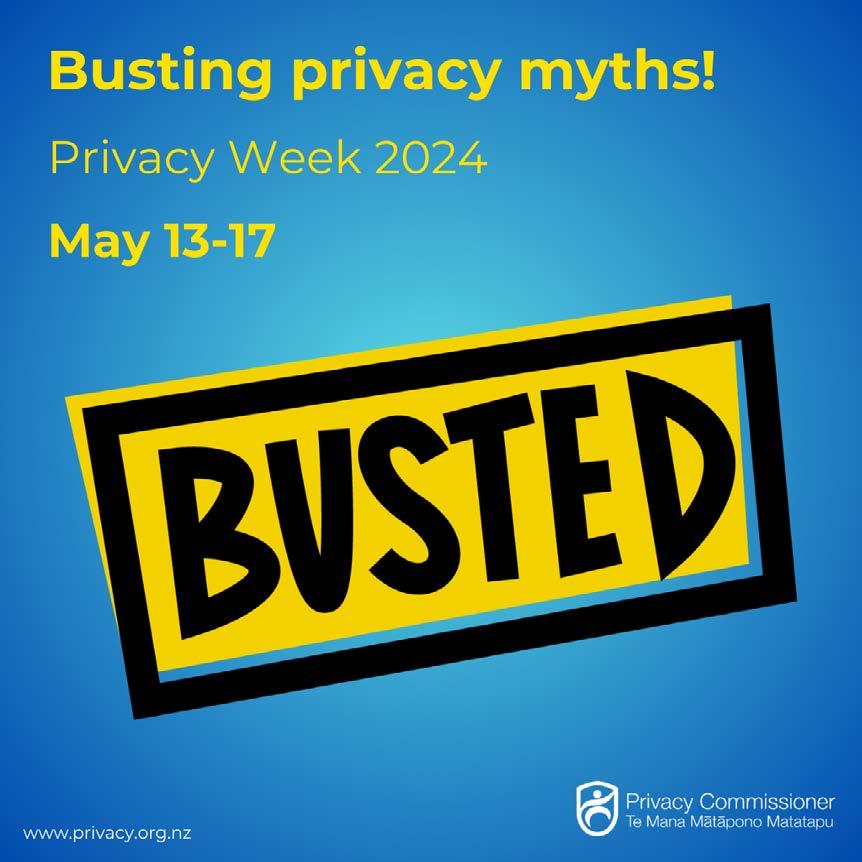
Throughout Privacy Week, the Office of the Privacy Commissioner offers a programme of webinars on privacy and security topics, which can be viewed online or at the Office of the Privacy Commissioner’s YouTube channel
A reminder to Health New Zealand | Te Whatu Ora staff to get ready for winter by getting your free flu vaccination.
It’s FREE for all our kaimahi, contractors, students, and volunteers. This is one of the most important things you can do to protect yourself, your whānau, your community, your colleagues, and the people we care for this winter.
Check out details on the daily staff email or on PRISM (Waitaha Canterbury intranet) to see a full list of clinics and times you can get your flu vaccination.
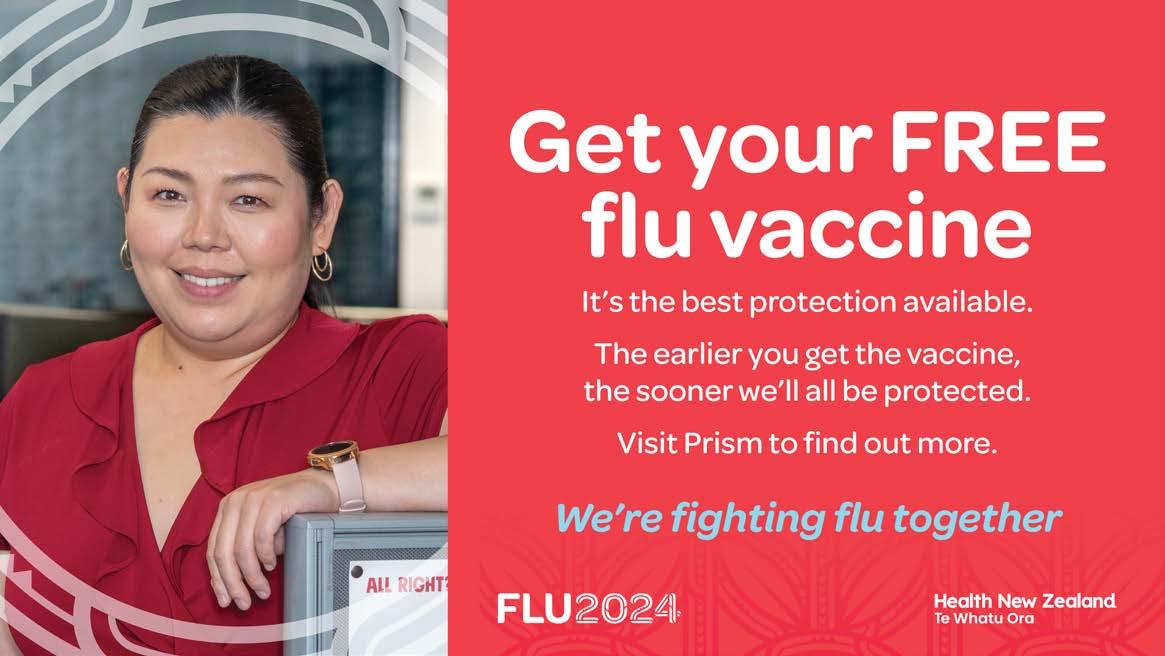
You can get your free staff flu vaccination from your local vaccinator or by attending one of the vaccination clinics being held at Ashburton, Burwood, Christchurch, Hillmorton and The Princess Margaret hospitals, as well as various West Coast locations.

Everyone using a health or disability service is protected by a Code of Rights. These rights are promoted and protected by an independent Health and Disability Commissioner.
The Code of Rights covers all health professionals such as doctors, nurses, and dentists. It also covers other types of providers, such as Rongoā Māori, naturopaths, homeopaths, acupuncturists, massage therapists, counsellors and support workers.
As service users, people’s rights include:
› Respect/Mana
› Fair treatment/Manaakitanga
› Dignity and independence/Tu rangatira Motuhake
› Appropriate standards/Tautikanga
› Effective communication/Whakawhitiwhitinga whakaaro
› Information/Whakamōhio
› Choice and consent/Whakaritenga mōu ake
› Support/Tautoko
› Rights during teaching and research/Ako me te rangahau
› Complaints taken seriously/Amuamu
You can learn more about your rights here
If you are unhappy about a service, or feel your rights have not been considered, you can find out what to do here.
This video from the office of the Health and Disability Commissioner helps people to be aware of their rights so they can ask questions, seek support, and ensure their voices are heard.
Applications open on 1 June for the prestigious Harkness Fellowship, a programme that allows mid-career professionals to spend a year in the United States studying healthcare delivery and policy.
The focus of the programme is to conduct research on topics related to healthcare access, quality, and equity. It encourages fellows to delve into an internationally comparative project, while developing leadership skills and networking opportunities.
Previous Harkness fellows who are now at Health New Zealand include national directors Dale Bramley and Martin Hefford as well as directors Robyn Whittaker, Penny Andrew, and Juliet Rumball-Smith.
For more information about the Harkness Fellowships visit the Harkness Fellowship website. Anyone interested can also register for an online information session on 29 May, which will include an overview of the programme and reflections from Harkness alumni on the fellowship experience.

Yesterday (12 May) was International Nurses Day and this week I’m taking the opportunity to say thanks and recognise the vital contribution of our nursing workforce to the health and wellbeing of our communities.
Across Waitaha Canterbury and Te Tai o Poutini West Coast, Health New Zealand | Te Whatu Ora employs more than 5,200 nurses in a huge diversity of roles – from paediatrics to aged residential care, from hospitals to public health, and everything in between.
I also acknowledge the important work of nurses working across a wide landscape of private, nongovernment organisation and community-based settings.
This year is the 50th anniversary of International Nurses Day, which dates back to 1974 when the
International Council of Nurses officially declared a day to celebrate nurses worldwide.
The day reminds us of the crucial role nurses play in our health sector, and the significance of their contribution as part of multidisciplinary teams.
The theme for International Nurses Day 2024 is ‘Our Nurses. Our Future. The Economic Power of Care.’ It’s a theme that has extra significance at a time when many people in our communities are facing challenging times.
I know that good health care is a fundamental building block in creating healthy communities and flows on into supporting economic and social wellbeing –and nurses play a central role in this mahi.
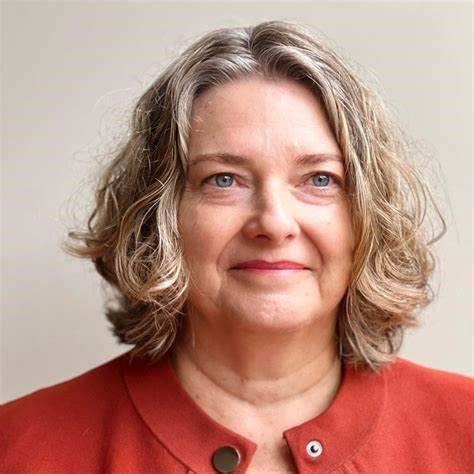
To all of our nurses, who are interacting with our community day-in day-out, providing dedicated, expert care, akū mihi nui kia a koutou, many thanks to you all.
Jo Gibbs, Interim Group Director of Operations Waitaha Canterbury


As part of celebrations for International Nurses Day, nursing staff based at Ashburton and Christchurch Hospitals were treated to kai by the Rapid Relief Team, a not-forprofit organisation who wanted to show their appreciation for local nursing teams.
Our Ashburton kaimahi were treated to lunch on Tuesday 7 May, while teams at Christchurch hospital gathered for breakfast or lunch on Friday 10 May.
In Ashburton, Registered District Nurse Tegan McCully said it was a wonderful gesture of appreciation for the work nurses do.

“Having a lunch shout is a lovely way to pause and come together, to reflect and be proud of the mahi and contributions we make here. Nurses often work in high pressure situations, so this gave us an opportunity to take a moment for a well-deserved break and celebrate,” says Tegan.
For Specialist Mental Health Services (SMHS) locations and Burwood Hospital, a lunch will be provided at a later date – watch out for details. More photos to come in next week’s Panui.
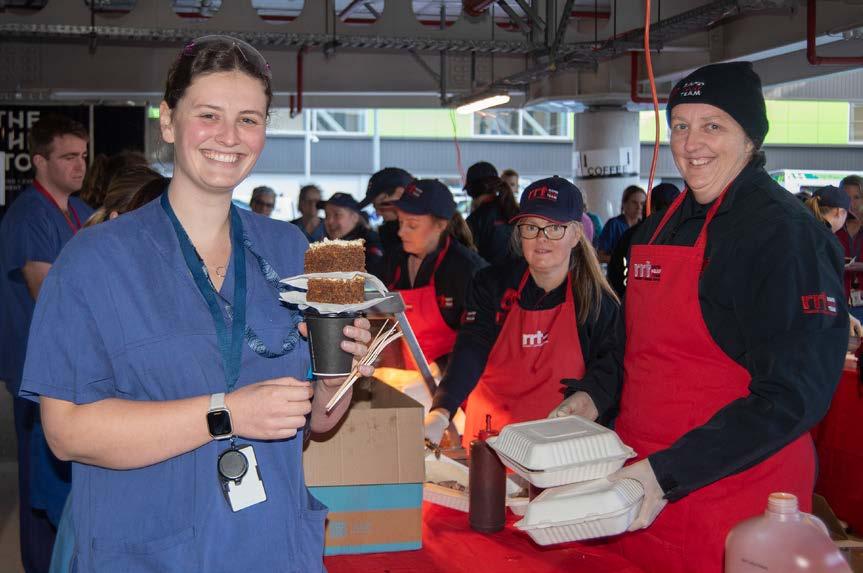

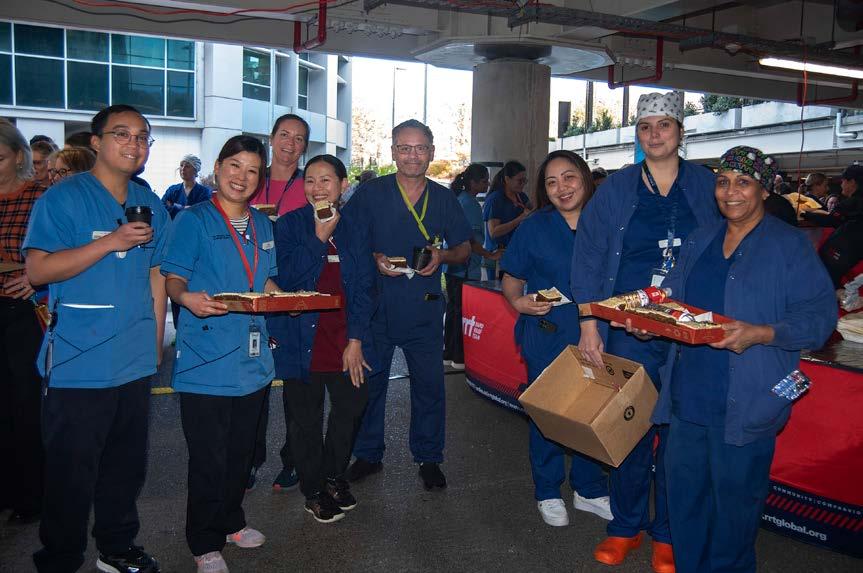
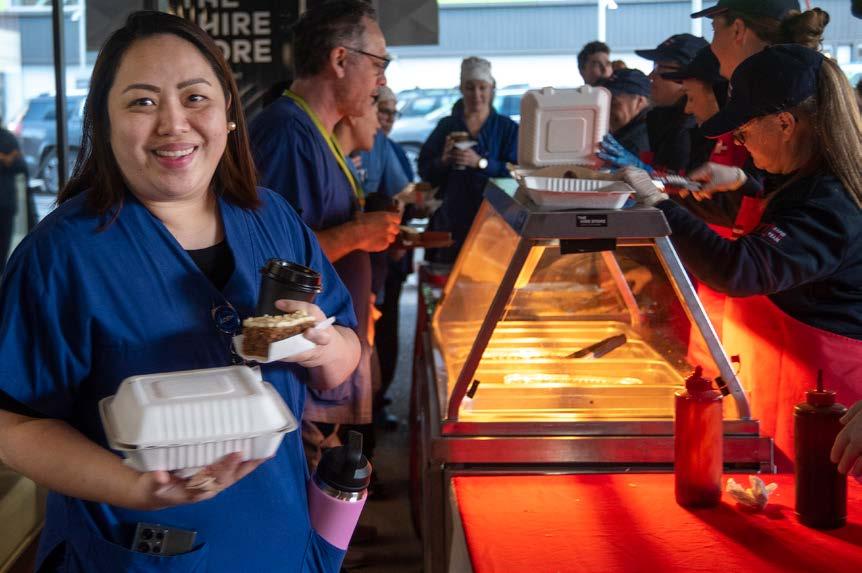
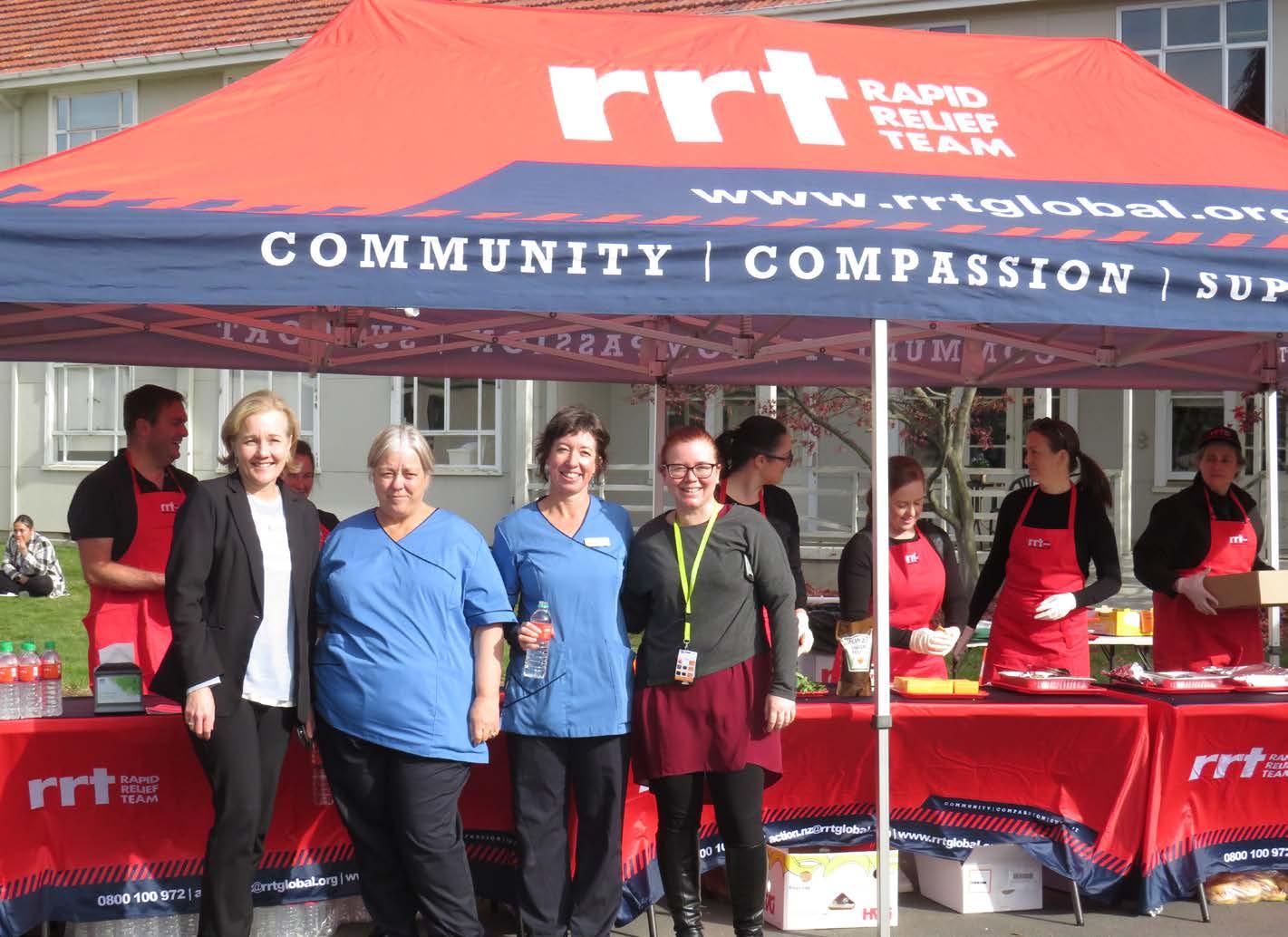
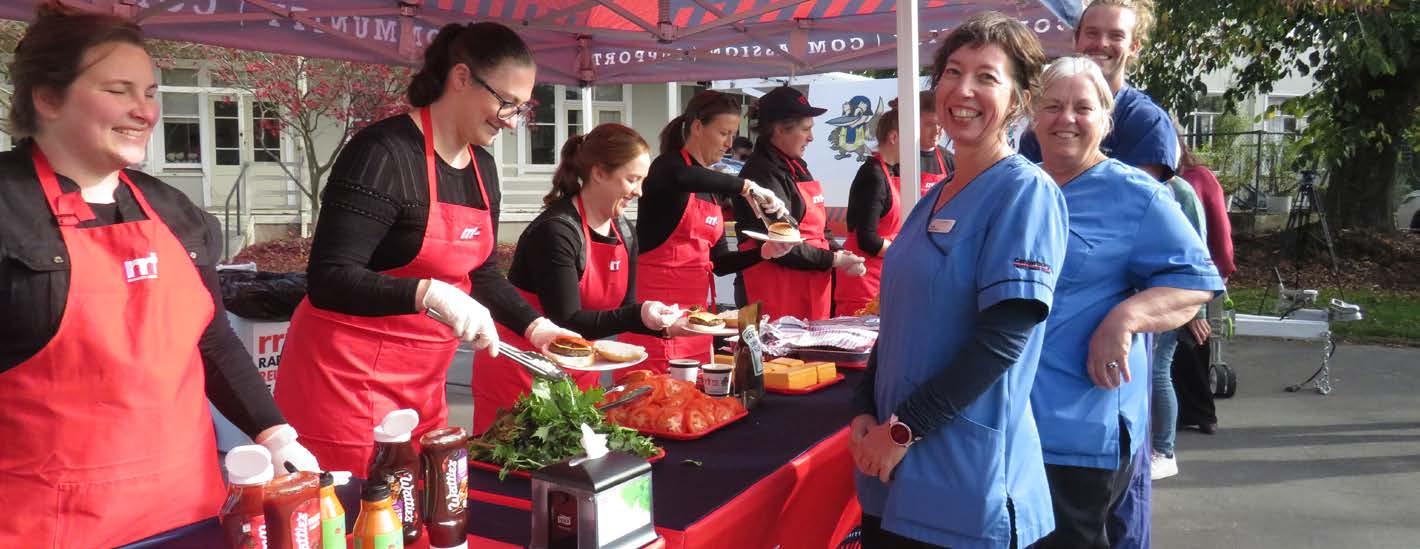

Kia ora tātou to all our nursing whānau. Sunday 12 May was International Nurses Day, which we are celebrating today (13 May) for both Waitaha Canterbury and Te Tai o Poutini West Coast.
The day honours Florence Nightingale, a woman who championed both the art and the science of nursing. She knew that nursing has a strong role to advocate and mitigate – a role we all play today to address stubborn health inequities.
Did you know that Florence Nightingale was not only known as the ‘Lady with the Lamp’ but also the ‘Lady with the Hammer’ as she would often break into locked areas to find medication to treat the wounded during war time? Florence also set up the first nursing school, and advocated for autonomous nursing leadership. We have much to thank Florence for!
Nurses have the honour of holistically caring for patients/ clients during times of significant vulnerability, of sharing in intimate matters in their lives, as well as being present during times of great joy and recovery. One of the key tenets for nursing in Aotearoa is the significance and value of cultural safety, the importance of whānau (family), wairua (spirituality) and whakawhanaungatanga (the processes we undertake to make connections, to build trusting relationships).
Every week I am humbled to hear about nurses making a difference in the lives of patients and whānau who journey through our health system. These stories show how holistic our care is, how cultural safety is front and centre of our interactions, where psychological, cultural, mental health, spiritual and physical care needs are being met, and how patient safety, recovery and wellbeing of patients are a key focus.
The examples I read describe how these nurses introduce themselves, how authentic they are, how they strive to get the pronunciation of patient and whānau names correct, and how they use their humanity and selfawareness to guide their care for patients and whānau, rather than their own assumptions.
I believe that nursing is a ‘safety critical’ occupation, and we play a crucial role in patient safety, recovery and wellbeing. On this important day for nursing we are announcing the national roll out of a programme titled ’Fundamentals of Care’. Fundamental care is defined as “care that involves actions on the part of the care team that respect and focus on a person's essential needs to ensure their physical and psychosocial wellbeing" (Feo, Conroy, et al., 2018).
This programme came about post the Francis Inquiry where fundamental care failures and increased patient deaths were found at Mid Staffordshire NHS

Foundation Trust. Findings included the need to create a more open and compassionate culture of caring, to truly listen to patient and families, to focus on quality and safety of care and to be aware of the potential harms that come from dysfunctional organisational cultures when these things become unbalanced.
With an Aotearoa lens, we would take the concepts further by including kindness and respect (manaakitanga), establishing relationships with patients and whānau (whakawhanaungatanga), delivering culturally appropriate care, and building trust through communication and participation with whānau, who hold a crucial role in health and wellbeing.
We want to move away from a system focused on reporting deficits to one focused on the positive contributions nurses can make to patient outcomes, and on how we can influence and identify what is needed to care for patients/clients.
So how do we do this? We need your help. Nursing is the biggest health workforce, and we can make significant impacts through our size, scale and leadership capabilities. Can I ask you to think about the following in your own work settings:
› How do we celebrate our caring successes in each of our areas?
› How can we find ways to talk about fundamental care delivery and what it would mean to patient safety and recovery in your area?
› Can we start the shift with a huddle to share our holistic care, e.g. what physical, psychosocial and relational aspects of care made a difference to our patients?
› How do we call out behaviours and attitudes that impact on our ability to have trusting, culturally safe spaces for patients and staff?
› How do we as experienced nurses undertake a nurse-led rounding process that focuses on enhancing patient and whānau involvement?
› How do we get real-time feedback from patients on the fundamental care they are receiving?
› How do we continue to improve communication between nurses and other clinicians?
I know you will have many other ideas that would help with our focus on delivering the fundamentals of care. Please do not hesitate to reach out to me and the Directors of Nursing to share your ideas. We are excited about the changes we feel we can make in each of our areas to transform the way we deliver care.

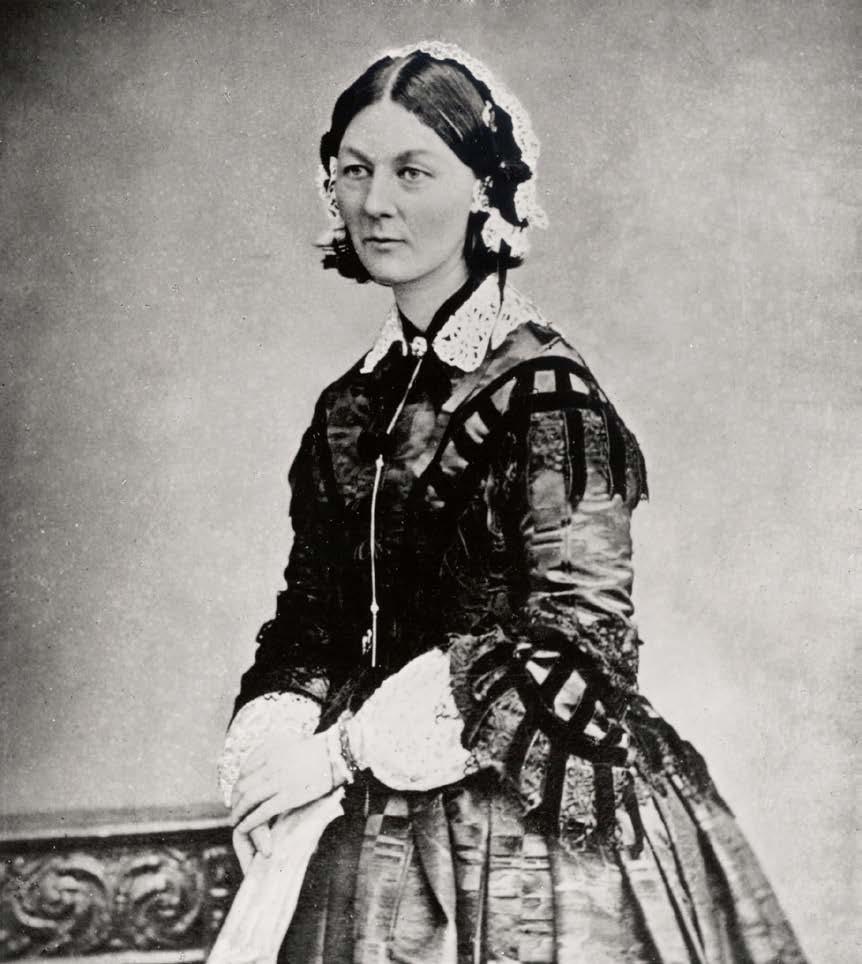
Finally, in the current environment of fiscal scrutiny and pressure, I know that nurses always rise to the challenge, step up and show leadership in these areas. I believe if we put the patient and their whānau at the centre of our care, and have a focus on the relational aspects of care, we can transform our environments, our processes, and patient outcomes.
Please take time to celebrate the achievements of our profession. Happy International Nurses Day!
By Becky Hickmott, Executive Director of Nursing,Waitaha Canterbury and Te Tai o Poutini West Coast

What does your job involve?
Providing primary labour, birth and postnatal care to women, whānau and pēpi; supporting midwifery colleagues; mentoring student midwives and new colleagues; educating and empowering women and whānau. I love primary care midwifery, and love working at Oromairaki as I get to work across the entire scope of midwifery and utilise my skills every day.
What pathway got you to this job?
I am fortunate to have worked in many roles over the years, ranging from remote rural midwifery on the West Coast to tertiary midwifery care in Australia. I came back from Australia in 2015 and worked as a Lead Maternity Carer midwife in the Selwyn district. Many of my clients birthed at the lovely old Lincoln Maternity Unit, and so I became close with the team of midwives there. I returned from maternity leave in 2022 after having my second baby and was offered a role at Oromairaki.
What advice would you give someone keen to enter your field?
Studying the Bachelor of Midwifery takes a lot of dedication and a good degree of time management, so make sure you have a strong support network! If you have a passion for women’s health and wellness it definitely helps!
Who inspires you and why?
I am inspired by my daughters Leah and Frankie, who are a reminder to me to be the best version of myself. They are the light of my life!
What do Waitaha Canterbury’s values (Care and respect for others, Integrity in all we do and Responsibility for outcomes) mean to you in your role?
These values really are central to me in my role and the care I provide as a midwife. I am grateful to be a small part of the life-changing journey of a whānau, so approaching my role with professionalism, humility and respect for the process is so important.
I realise the impact midwives can make on the outcomes for whānau, so I don’t take my role for granted, and I always try to empower and support women and their whānau, so their experience is positive. I feel that when these values are also upheld within our collegial relationships, it positively reflects in the care we are providing.
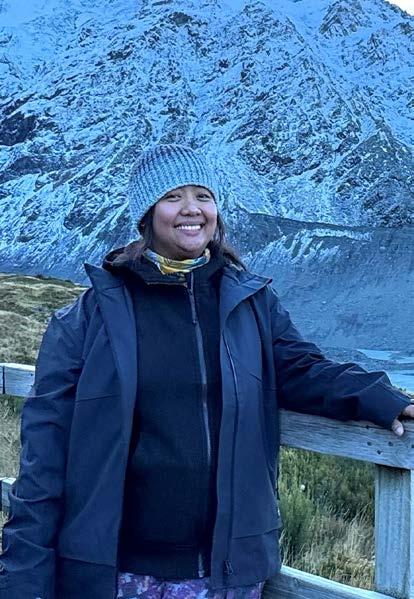
If you could be anywhere in the world right now, where would you be and why?
In the Shetland Islands (where I am from originally) with all my family, having a bonfire on the beach watching the sunset.
Who would you want to play you if there was a movie made about your life, and why?
This is the hardest question to answer! Maybe Kate Winslet or someone funny like Kirsten Wiig.
What are some of the ways you and your whānau show their aroha/love for our planet?
Being plant-based, composting, recycling, growing some of our own veggies.
What are your hobbies/interests outside of work?
Outside of work, I enjoy various hobbies and interests, including playing the guitar and ukulele, and singing. Music has always been a significant part of my life, and I find joy and relaxation in strumming the strings and singing along to my favourite songs. I also enjoy exploring nature through tramping or nature walks and have set a goal to finish all 10 New Zealand Great Walks.
If you would like to take part in this column or would like to nominate someone please contact Naomi.Gilling@cdhb.health.nz

The Health New Zealand | Te Whatu Ora Waitaha Canterbury Disability Steering Group (DSG) plays a key role in monitoring and supporting the implementation of the Transalpine Health and Disability Action Plan 2020-2030.
The DSG consists of local Health NZ staff and representatives from the disability and Deaf communities. They work together to find solutions to resolve social and environmental barriers that the disability and Deaf community face within the local health system.
In the second of our series of profiles of members of the DSG we meet Paul Barclay.
Tell us a bit about yourself
I have lived in Christchurch for almost all of the 40 years since moving here from rural Otago to study when I left school. I am married and we have an 18 year-old daughter. I run my own business, Vision Without Limits, which provides a mix of Disability Employment Support, Accessibility Awareness/Advocacy and Supervision/Coaching. I am involved in the disability, health and disabled sports communities here in Canterbury and across New Zealand. Sport is important to me. I am now a marathon runner after previously representing New Zealand at both Goalball and Blind Cricket.
Tell us about your impairment/disability and the support you need in relation to health services I am totally blind following a car accident more than 35 years ago. The biggest issue I have with accessing health services is getting information in a format that I can independently read. That independent access to information allows me and other disabled people to make informed decisions about our health care. I have adaptive technology which helps me access printed and web-based information. However, that doesn’t allow me to access that information if it is not presented in an accessible manner or in a location that I can access it. For example, a poster on a wall is completely inaccessible to me. I need that information electronically as a Word document attached to or included as text in an email message.
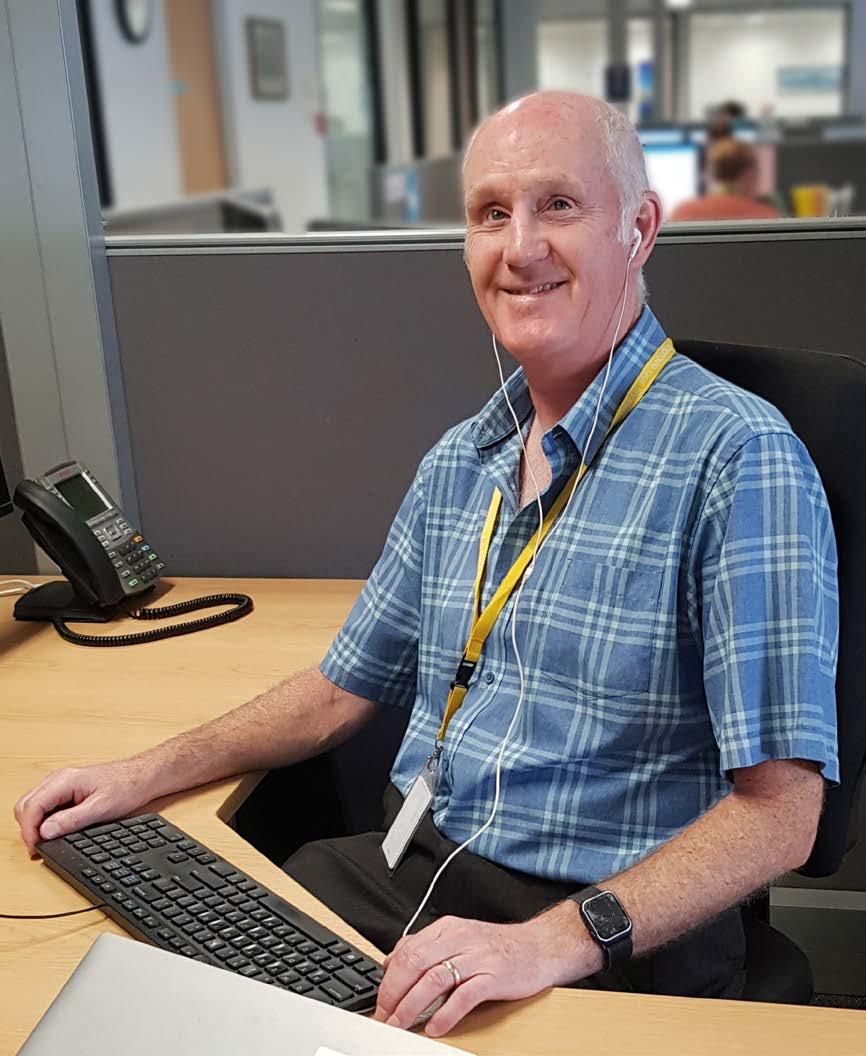 Paul Barclay
Paul Barclay
Can you reflect on a time you received good support from a health service and what that meant for you
I am fortunate that, while I am a disabled person, I don’t access health services very often. My disability is permanent, but there are no health issues associated with it. Most of my health contacts relate to me being a male in my 50s rather than being a blind person. Interacting with me as a capable disabled person is the best service I can get from health services. Having the checks that 50-plus males should receive means a lot to me. It means I am a full member of society rather than being seen as a disabled person first. I am also very fortunate to have had the same GP for 20 years. She knows what support I need and appreciates that I have the best knowledge of my health and we work together to get what I need.
Reflect on a time you didn’t have a good health experience and what could have been differently for a better outcome
There was a lot of confusion around COVID-19 when it first arrived back in 2020. Most of the information was visual, such as posters on walls in medical centres. That meant that my proactivity around self-care was delayed. The supports for disabled people were implemented, but there was always the delay after information was available publicly. The ideal would be to have information fully available in an accessible format and in all alternate formats when it is first released to the public. That would allow us to get the correct information rather than relying on someone else to give us their interpretation or understanding of the information.

What advice or recommendations would you give health professionals when dealing with disabled and Deaf people?
The most important thing you can do is ask us what we need. We usually know what we need. It is individual to each of us and what one disabled person needs may not necessarily be what the next person needs. Don’t assume – it is better to ask. We live with our disabilities 24/7 and we know the signs when we are unwell or when we need health service intervention. Don’t ignore what we try to tell you.
Thursday 16 May is Global Accessibility Awareness Day (GAAD). The purpose of GAAD is to get everyone talking, thinking and learning about digital access and inclusion, and about the more than one billion people with disabilities/impairments.
Find out more at the GAAD website
Find accessibility resources and information for Health New Zealand | Te Whatu Ora here.
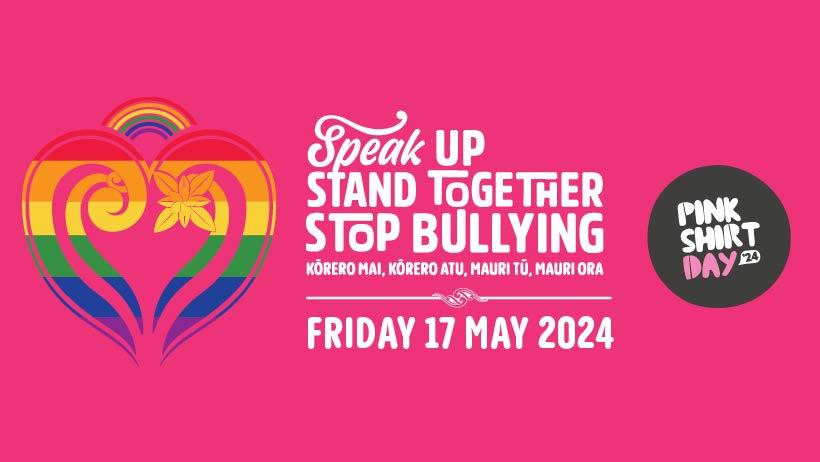


Gastrointestinal Endoscopy Team, Christchurch Hospital
I am writing to say a huge thank you to the team who assisted me during a colonoscopy. Their kindness, open communication and professionalism was amazing and made the whole experience a lot more tolerable. I am particularly appreciative of Jonas Harder, the surgeon, who has since followed up with a personal call and referrals for further tests/scans. The problems I have, while I manage them as best I can, are incredibly limiting and have huge impacts on my quality of life. I am really grateful to now have a medical professional who is keen to look further into the issue. Thank you so much for the level of care and attention I am currently receiving. I realise it is a challenging profession, with tight timelines and limited resources. You are all truly appreciated.
Olivia Green and Manea Waaka, Northcote Community Dental Clinic
My daughter had to have a tooth out due to an infection. The team at the Northcote Community Dental Clinic showed her every moment of kindness. They were kind, patient and so considerate of her needs. We really appreciated the level of care she received today, considering she is only seven and it was a little traumatic. What a fab team.
Day of Surgery Admission (DOSA), Surgical Assessment and Review Area (SARA) and Ward A5, Christchurch Hospital
I was admitted twice to Christchurch Hospital, firstly via DOSA and secondly via SARA, and I ended up on Ward A5. I just want to say how kind and caring everyone who I came across was. The nurses,
doctors and surgeon were fantastic all through my journey. The food was lovely (especially the meatloaf and tomato pasta), and the catering assistants who delivered the food were so nice. The cleaning was well done, and the cleaner always had a ready smile. The orderlies were jovial and helpful. Hospital is not somewhere anyone wants to be, but with a fantastic group of people throughout the system it makes it comfortable. Thanks to all.
Ward B8, Christchurch Hospital
I want to say a quick thank you to the entire neuro staff, especially the nurses. Thank you for everything that you do! It was really appreciated.
Eye Outpatients, Christchurch Hospital
I have visited Eye Outpatients four times in two years and have had a completely satisfactory experience. People were polite, patient and helpful. Thank you.
Christchurch Hospital
Staff are always great in whatever area of the hospital I have been. Thank you all! We have the best hospital in New Zealand! The staff looked after us well as a family.
Ward B4, Christchurch Hospital
Steve and Jacob are absolutely the best ever! In fact, all your staff are amazing people. Thank you so much for keeping me going when times were rough. All of you are so kind. Rachel on the front desk is a very nice lady. Staying here is scary but your nurses helped me through it.
Ward B4, Christchurch Hospital
A big positive shout out to the medical staff looking after my 97 year-old mother after a hip/leg operation. Special shout out to Nurses Simon, Ella, and Lily. Lovely care at a difficult time.
Dental and Surgical teams, Christchurch Hospital
Thank you to the Dental team for taking such great care of my son. Also, to all the other medical professionals who were involved in his surgery.
ED, Christchurch Hospital
I cannot believe how wonderful all the staff we encountered were, from the amazing Security team, to the receptionists, and the amazing doctors and nurses. The atmosphere was just amazing. Thanks to you all.
Madi, Vessel Health Preservation and IntraVenous Access (VIVA) service, Christchurch Hospital
Registered Nurse Madi Connolly from the VIVA service was just superb, very professional. She explained everything in great detail, was empathetic and did such a good job. VIVA is a great service and Madi is a great member of the team.
Gardener, Christchurch Hospital
Thank you for the beauty. I would like to thank the current team caring for the grounds and gardens surrounding Christchurch Hospital. A vibrant mix of perennials and annuals on a backdrop of indigenous flora is warmly welcomed when arriving for early starts. It is obvious that much thought and care is going into the design and maintenance. Thank you to everyone involved for your hard work –ngā manaakitanga.
(Letter to the Editor, The Press)

Scan, Burwood Hospital
I cannot express my thanks enough to every member of staff at Burwood Hospital for the help showed to me. From the moment I met the ‘ask me’ volunteer and was shown the way to the Renal receptionist who booked me in and showed where to get the drinking water from and where to sit and wait to be called. The nurse that called me for the scan was so helpful all the way through. On my way out I asked for a taxi to be called to take me home. She was so helpful it was great. Thank you all.
Parkside Café, Christchurch Hospital
Thank you to the lovely male staff member who took my order at the Parkside Café. You were so friendly, despite it being very busy. The service was quick, and you were smiling all the while. The coffee was great too! Thank you for your hard work.
Acute Care, Christchurch Hospital
I was in the acute care ward at Christchurch Hospital. All the staff were amazing, but particularly a nurse practitioner I had care for me. I can’t remember her name, but she was there around 8pm and said she is new to the hospital. She provided exceptional care, was kind and left me feeling confident with my diagnosis.
Ward B8, Christchurch Hospital
Massive thank you to everyone who took part in looking after me. I felt very well cared for. Thanks for everything, hopefully I won’t be back!

Making a difference for patients is the best thing about the job for the Outpatient Parenteral Antimicrobial Therapy (OPAT) team.
“We really enjoy our work and are very passionate about what we do. For all of us, it’s very satisfying being able to safely discharge patients home, especially if they have been in hospital for quite some time,” says one of the team’s Clinical Nurse Specialists (CNS) Michelle Casey.
Run by the Infection Management Service, Te Whare Tukumate, these antibiotic delivery experts run a seven-day service 8am4pm, working closely with eight consultants and two registrars, as well as Sterile Pharmacy and district nurses.
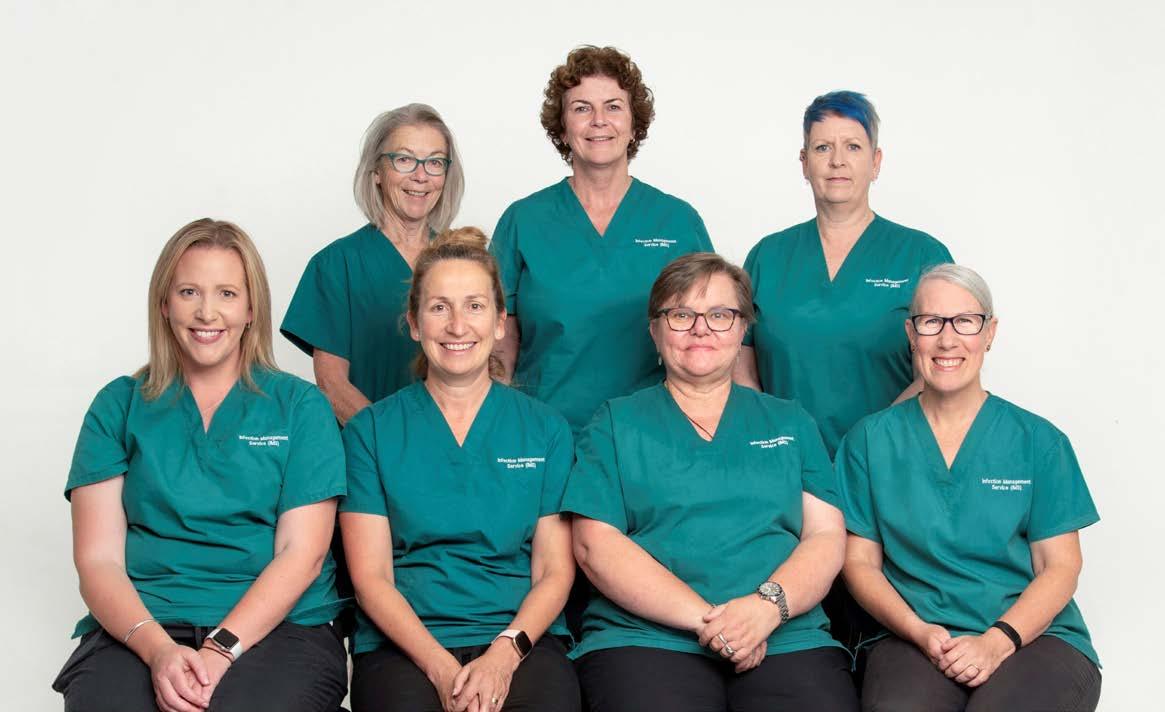
The team is made up of two clinical nurse specialists who job share, and five registered nurses who work all over Christchurch Hospital providing oversight for the often-complex issue of patients’ antibiotic needs and facilitating their safe discharge home.
These include people with conditions such as endocarditis, osteomyelitis, septic arthritis, bronchiectasis, staph aureus bacteraemia, sepsis, and various joint infections, who can be on intravenous antibiotics at home for periods ranging from a couple of weeks to several months.
The service, formerly known as the Home Intravenous Antimicrobial service (Home IV), was started in 2000 by Kate Gallagher, along with Professor Steve Chambers. Kate recently stepped down as the team’s CNS but continues to work as a Registered Nurse in the team.
Today they are the biggest OPAT provider in New Zealand, having grown exponentially in the last 24 years.
The team accepts referrals from all specialties throughout the hospital, and works with babies in the Neonatal Intensive Care Unit, through to
patients in neurology, intensive care, gynaecology, high dependency and more.
The two biggest referrers are Orthopaedics and Respiratory and they work with patients in Christchurch, Canterbury (including north and south), Ashburton, Nelson, and the West Coast.
“We look after a lot of rural patients. This presents challenges, organising blood tests and timely delivery of medication. Thankfully we have amazing district nurses in those areas who we work closely with,” Michelle says.
The team problem-solve patient issues that arise in the community, liaise with the Infection Management Service, Respiratory and Paediatric doctors. Often they are taking care of between five and 15 inpatients and 35 to 50 outpatients.
Increasingly, patients have complex discharge requirements due to a variety of factors including their social situation, mental health, and physical ability, says CNS Deborah Smillie.
“Some patients choose to self-administer their own medication and we start the teaching in hospital. We arrange follow-up appointments with virtual clinics and hold OPAT clinics.”
The team is constantly looking at its processes to ensure they are effective.
“It’s all about antimicrobial stewardship and working in a team. Good communication is really important.
“We couldn’t do what we do without a close relationship with the hospital pharmacies, district nurses and the great team of consultants and registrars. Our hospital pharmacists are amazing and Christchurch Hospital’s Sterile Pharmacy department is pivotal in being able to discharge our patients,” she says.
Every Wednesday morning the OPAT clinic is held at Christchurch Outpatients where a minimum of 10 patients are seen by consultants and registrars. Two nurses support that clinic where they often remove PICC (Peripherally Inserted Central Catheter) lines, administer antibiotics infusions, or do wound dressings.

A message from the team: If patients are readmitted to hospital and they are having intravenous antibiotics in the community, please let us know as soon as possible so that we can inform our district nursing colleagues in the community and the Pharmacy department, to ensure antibiotic stock is not wasted.
Contact the service at any time with your questions on ext 81465, 0272900823 or email OPAT@cdhb. health.nz
Or visit the Infection Management Service intranet page for further information.
We are happy to help!
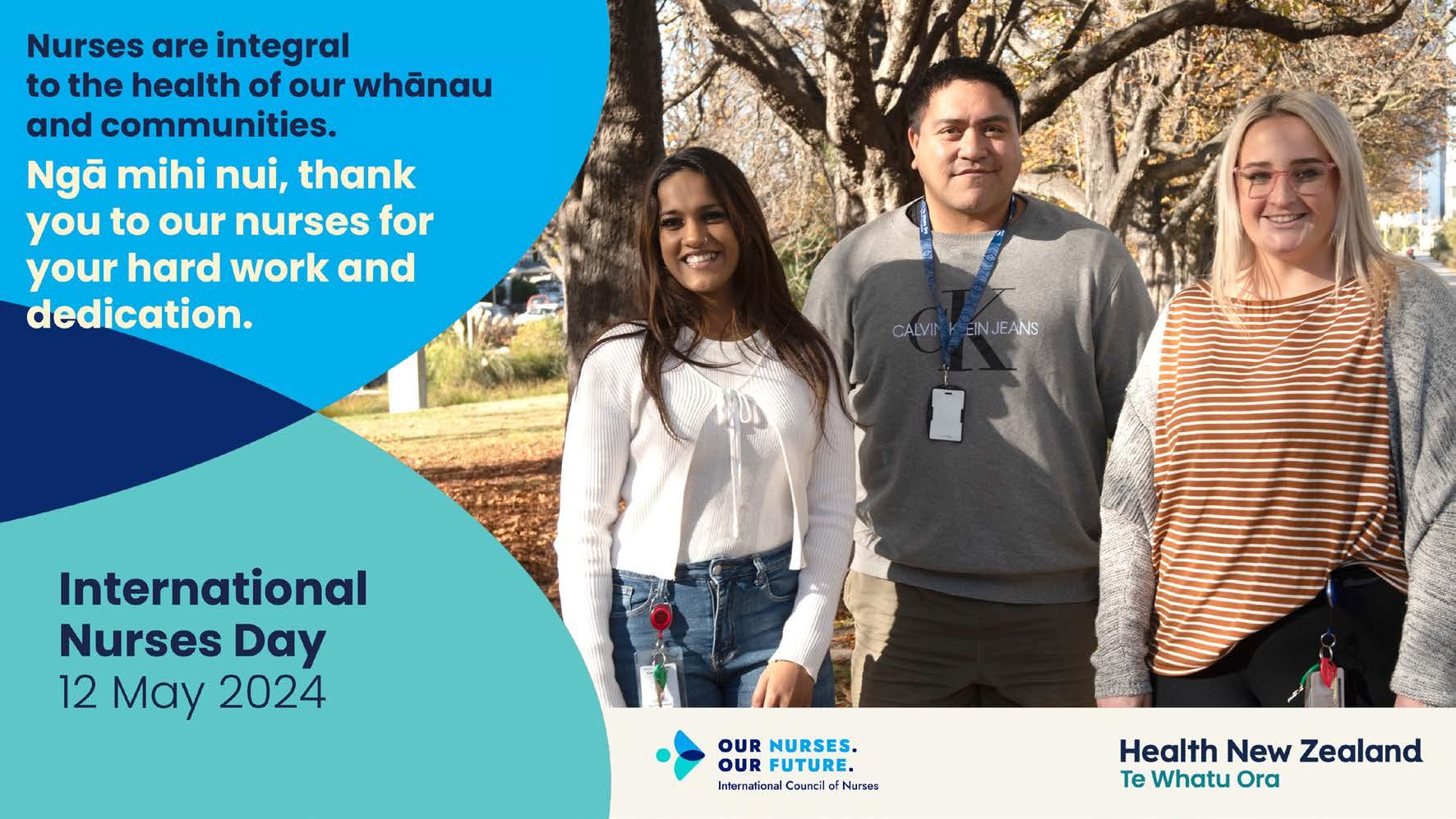

Since launching the 2024 Jammies for Juniors campaign a month ago, a steady stream of pyjamas for young children have been donated – but many more are still needed.
Christchurch Hospital Volunteers Inc run the Jammies for Juniors programme, which is seeking donations of new pyjamas in children's sizes 1 to 16.
Last week’s cold snap was a good reminder of the need to make sure young patients have clean, warm PJs during their stay in hospital.
Volunteer coordinator Louise Hoban-Watson says she’s been delighted with the response so far, which has included some bundles from local businesses.
To reduce the risk of infection, only new flannelette pyjamas will be accepted. All pyjamas must meet the New Zealand product safety standards and carry the fire safety certification (look for the ‘caution keep away from heat’ label). Pyjamas must also have buttons down the front.
Some suggested retailers include Farmers, The Warehouse, Postie Plus, Kmart, Cotton On, Bed Bath & Beyond and Peter Alexander, but donations from any reputable source are welcome.
Donated pyjamas should be dropped off at Christchurch Hospital, either at the main Reception desk, the Volunteers' Office or to a WayFinder volunteer (they wear a blue ‘Can I help you?’ vest).
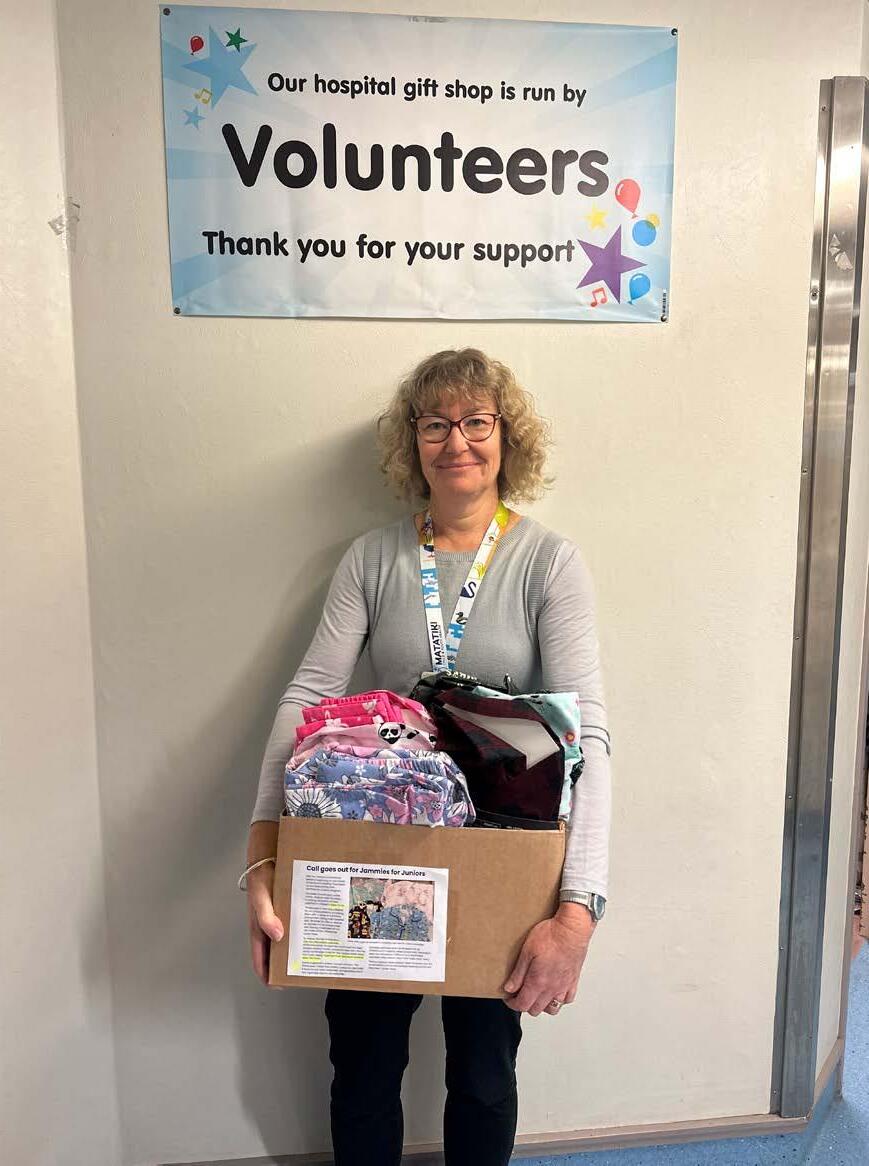
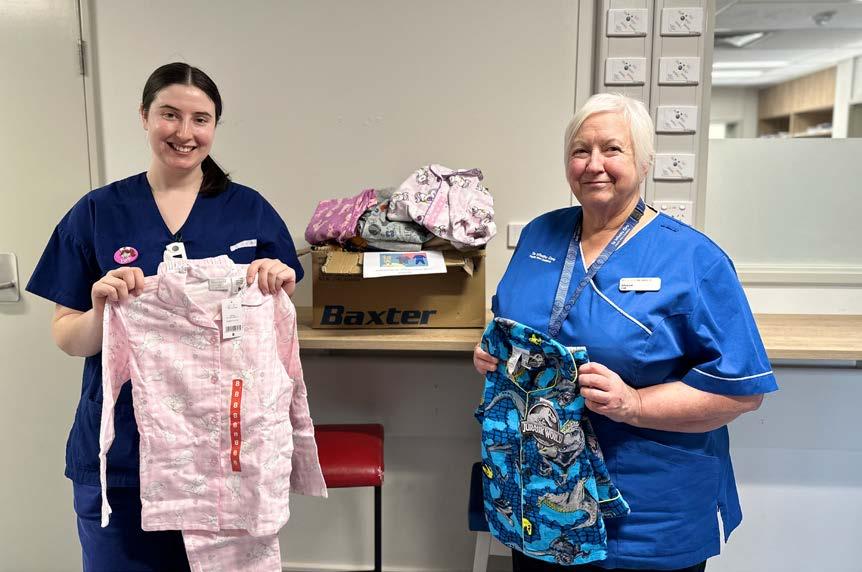

A vaccination drive held during World Immunisation Week by Etu Pasifika
Canterbury saw some fabulous results for the Pacific community in Christchurch, with 480 vaccinations administered.
Etu Pasifika is an integrated primary care, mental health and wellbeing healthcare service with locations in Auckland, South Auckland and Christchurch. They provide a range of support services delivered by Pacific health professionals, trained and skilled community workers and cultural navigators.
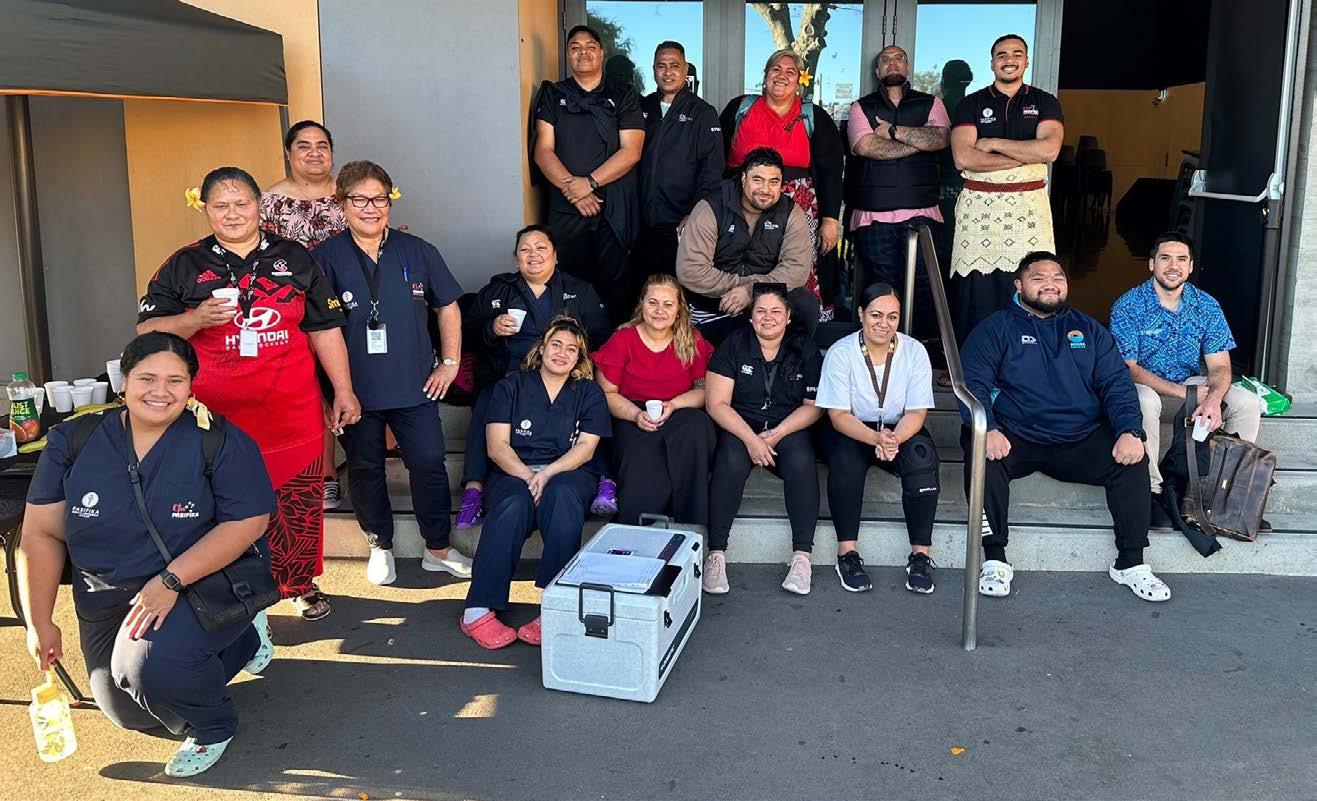
“It’s all about providing healthcare that’s in line with traditional Pacific values, like family, service, reciprocity, love and respect,” she says.
Etu Pasifika Canterbury Clinical Director Dr Ah Mu said that leading up to winter, it’s important that the community know how important it is to get immunised.
"The turnout was amazing, and we loved having the community support the event. It was so encouraging to see families so willing to be immunised,” he said.
The event was held at Te Aratai College, and people could get immunised against COVID-19, measles mumps and rubella (MMR) and the flu.
The Health New Zealand | Te Whatu Ora Pacific Health Te Waipounamu team attended the event.
Erolia Leinatioletuitoga Eteuati-Rooney, Regional Director, Pacific Health, says the success of this event shows how these types of drives are so important to our Pacific communities.
“It was such a welcoming, friendly environment, with food available, music playing and children’s activities—so people could turn up with their families and all take part together.
“Pacific healthcare providers know best about how to reach out to their own communities, and Etu Pasifika Canterbury did a wonderful job at this event. They even told me that they had to go back to their clinic twice to get more flu vaccinations— what a great result.”
Etu Pasifika Canterbury is now planning their next event, which will take place in June.


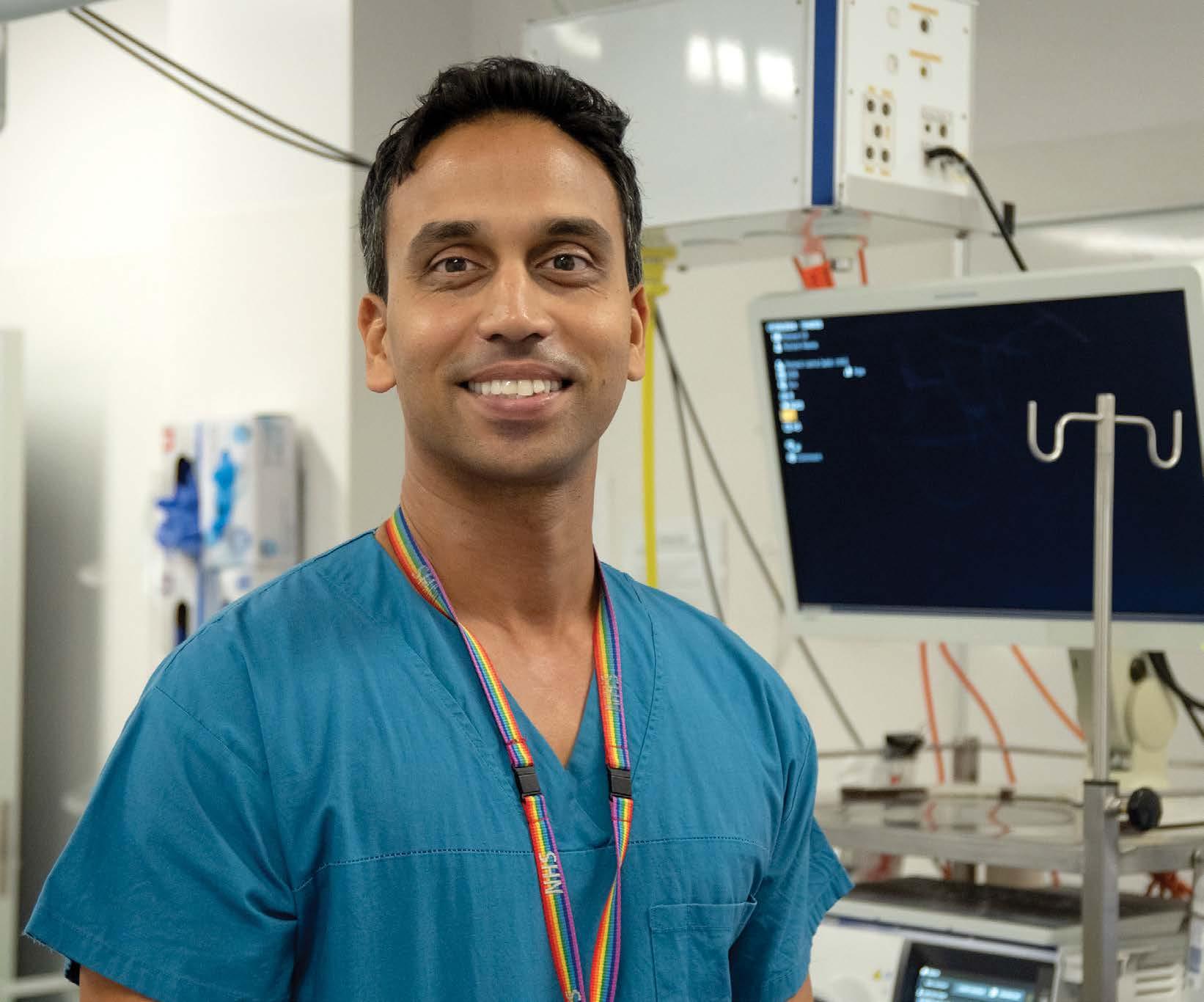
The earlier you get the vaccine, the sooner we’ll all be protected.
To view clinic times and locations, visit Prism.
We’re fighting flu together
